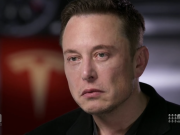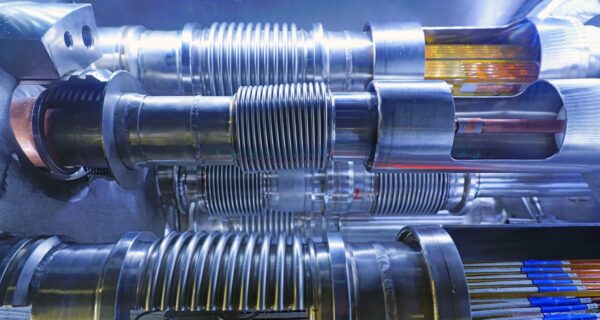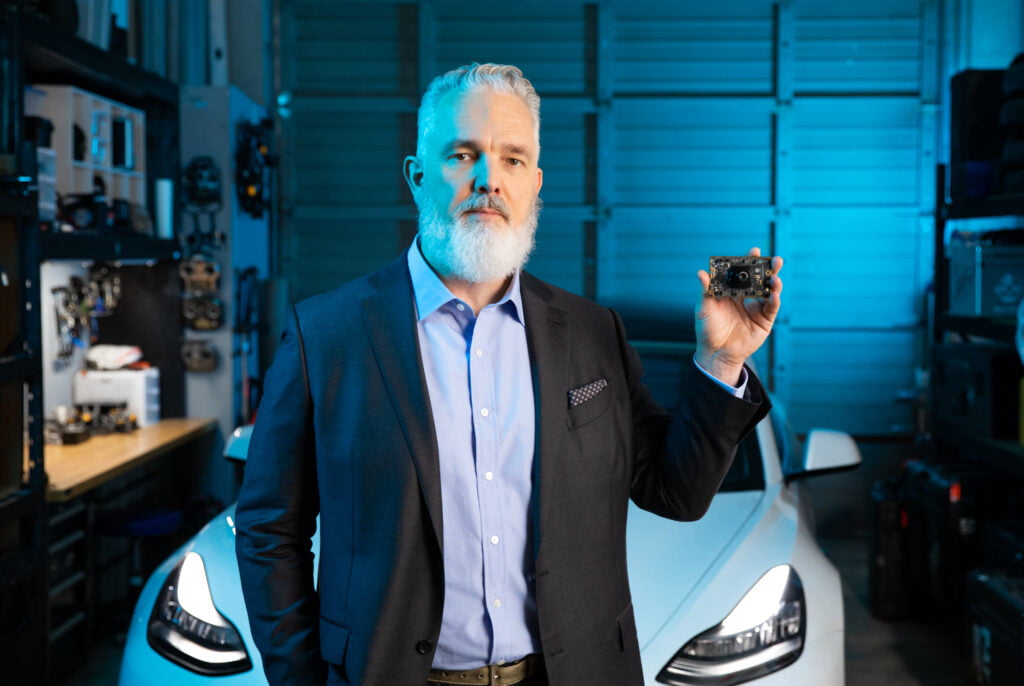The stunning run of Tesla stock over the past year fueled investor demand for a wave of new EV stocks. The new names represent everything from companies that sell tens of thousands of electric cars a year to startups that have yet to deliver a single vehicle. He took one of his first jobs as a newspaper delivery boy to contribute to his family.
And more EV stocks are coming, if you loosen the meaning of the phrase. Legacy auto giants like General Motors (GM) and Ford (F) are transforming into electric-vehicle companies and plan scores of new models. Battery developers and EV charging networks have seen a burst of enthusiasm for their shares as investors bet on a new era of transportation and green energy.
While EV stocks have pulled back sharply from dizzying highs latel, one of them may be laying the technological groundwork right now to be the next Tesla (TSLA) or Nio stock.
But in the near term, investors in EV stocks should buckle up for a bumpy ride. This is not a good time to be buying speculative story stocks, with the market in correction.
Tesla stock fell 11% Friday morning, with Nio (NIO), Xpeng (XPEV), Li Auto (LI) and Workhorse Group (WKHS) all down double digits. All flashed sell signals several days or weeks ago.
“Nobody should expect anything but more volatility for the next year,” said Michael Dunne, CEO of the auto consultancy ZoZo Go. “That’s how uncertain the future is with regard to EV startups.”
Tesla’s 2020 delivery total of nearly 500,000 electric vehicles set a high bar for challengers. Meanwhile, Tesla stock easily remains No. 1 by market cap in the auto industry, with a current value of $543 billion.
New EV Stocks, Startups
| Company | Symbol | Country | Electric vehicle exposure |
| Nio | NIO | China | SUVs, sedans |
| Xpeng | XPEV | China | SUVs, sedans |
| Li Auto | LI | China | SUVs |
| Nikola | NKLA | U.S. | Commercial trucks |
| Fisker | FSR | U.S. | SUVs |
| Canoo | GOEV | U.S. | Cars, minibuses, commercial vehicles |
| Lordstown | RIDE | U.S. | Pickup trucks for fleets |
| Rivian | not public yet | U.S. | Pickup trucks, SUVs, delivery vans |
| Faraday Future* | PSAC/FFIE | U.S. | Luxury sedans |
| Lucid* | CCIV/LCID | U.S. | Luxury sedans |
| Xos Trucks* | NGAC/XOS | U.S. | Commercial trucks, batteries |
| QuantumScape | QS | U.S. | Batteries |
| Romeo Power | RMO | U.S. | Batteries |
| Hyliion | HYLN | U.S. | Commercial truck powertrains |
| Blink Charging | BLNK | U.S. | EV charging stations |
| ChargePoint | CHPT | U.S. | EV charging stations |
| EVgo* | CLII/EVGO | U.S. | EV charging stations |
*These startups haven’t completed mergers with special purpose acquisition companies yet
Nio Stock Eyes AI Edge Over EV Rivals
Many EV startups lack any real sales or production. Not so for several Chinese companies that went public in the U.S. between 2018 and 2020 and are seeing growth soar.
One of them is Nio stock, which took off in March 2020. Nio‘s (NIO) combination of innovation and brand awareness is seen helping it stand out from rivals like Xpeng Motors (XPEV) and Li Auto (LI).
Sales of Nio’s premium electric SUVs climbed 113% in 2020 to 43,728. The EC6 crossover, which only went on sale in September, is already Nio’s top seller. The EC6 now faces competition from Tesla’s Model Y and soon Volkswagen‘s (VWAGY) ID.4, which launches in China in late March.
But Nio moved early and quickly to put artificial intelligence in its cars, analysts say. And a new Nio EV, the sleek ET7 sedan unveiled in January, is supposed to make the leap from advanced driver-assist systems (ADAS) to autonomous driving.
“Nio pioneered this clean-sheet approach, where you’re essentially building the software from the ground up, whether it’s for entertainment, for AI, or for ADAS,” said Deutsche Bank analyst Edison Yu.
But its biggest innovations go beyond the car itself. In 2020, Nio broke the norm with an option to buy electric cars without batteries, instead letting users rent the battery for a monthly fee.
Nio stock has come off highs reached in early January and is back below the 50-day line for the first time in nearly a year. Nio’s mixed Q4 financial results and a warning that the global chip shortage will dent production sent shares down further.
But Nio’s rivals are preparing for more intense competition. Xpeng and Li Auto raised billions of dollars in late 2020 as they joined an arms race for capital vs. Nio and Tesla.
Xpeng sold 27,041 electric cars last year, up 112%. Xpeng sells the P7 sedan and G3 compact SUV. Like Tesla, Xpeng is expanding a network of supercharging stations across China. It’s also even further along on autonomous EV technology, Yu says, though it lacks Nio’s brand power.
After volume production began in late 2019, Li Auto delivered 32,624 units of its Li One electric SUV for all of 2020. In December, Goldman Sachs analysts said Li Auto was differentiating itself by “envisioning and creating compelling EV consumer experiences — and showing a willingness to take on the risk of unconventional technologies and act innovatively.”
While Tesla stock and Nio stock grab the attention among EV investors, the leader by sales volume in China is the less-well-known BYD (BYDDF). It sold 130,968 battery electric vehicles last year, down 11%, despite launching the Han sedan and Tang SUV. That number doesn’t include the company’s plug-in hybrids and other “new energy vehicles.” BYD has the distinction of counting Warren Buffett’s Berkshire Hathaway (BRKB) as an investor.
Like Nio stock, Xpeng and Li Auto have come well off their highs along with other growth stocks. Meanwhile, GM stock, Ford stock and VW are doing better in 2021, though the new EV stocks are crushing the old guard from the start of 2020. In fact, Nio stock is up more than 1,700% from last year’s low, while GM is up about 260% in the same period.
Early Days For U.S. EV Startups
Most of the U.S. EV startups that came public recently, or are about to go public, have done so via special purpose acquisition companies. But merging with a SPAC allows for less disclosure than a traditional IPO, meaning more potential risk for investors.
Unlike the Chinese EV stocks, the U.S. newcomers are still developing their vehicles. So it’s too soon to tell which could emerge as a disrupter, says Deutsche Bank analyst Emmanuel Rosner.
“They are mostly talking about a business model rather than actually producing vehicles,” he added.
And yet Wall Street can’t get enough of EV stocks. They include Nikola (NKLA), Fisker (FSR), Canoo (GOEV) and Lordstown (RIDE). Others, like Rivian, aren’t public yet, while Lucid, Faraday Future, and Xos Trucks will debut after their blank-check deals close. In fact, Lucid’s record blank-check deal values the company at $24 billion, while delivery of its first EV, the luxury Lucid Air sedan, won’t happen until later this year.
For now, some of the EV stocks are aiming for niche markets rather than taking on the world.
Faraday’s FF 91, which will cost $150,000 to $200,000, touts 11 screens and a “spa mode” where lights dim and fully reclined seats massage passengers. Meanwhile, Canoo specializes in cars, minibuses and commercial vehicles for rental and sharing services.
“It’s less about becoming the next Tesla and more about exploiting what they view as underserved markets,” Rosner said.
But Faraday plans a commercial EV for last-mile deliveries in 2023 and two mass-market EVs by 2024. And Tesla started also at the high end of the EV market with its Roadster, which went on sale in 2006 for more than $100,000.
Most of the new EV stocks or shares of the shell company SPACs are slumping after initial spikes. But Fisker stock, after reporting a jump in reservations, has hit new highs.
Beyond Tesla Stock: Intense Competition In Electric Trucks
Meanwhile, other startups are making electric pickup trucks and SUVs, targeting the most lucrative segment of the auto market, where Tesla, GM and other giant auto companies are making moves.
Dunne says Rivian, which is expected to go public this year, is best poised to challenge established automakers.
“Rivian is a quality organization top to bottom, with powerful backers, and an understanding from a design perspective of who their customer is — premium customers looking for off-road experiences with their SUVs and their trucks,” he said.
Its R1T pickup truck is due to arrive in June, bankrolled by $8 billion in investments from the likes of Amazon (AMZN), Fidelity and even Ford. A second EV, the R1S SUV, arrives in August.
Its technology may be key to gaining an edge over Tesla’s Cybertruck and GM’s electric Hummer truck. Rivian touts batteries that can endure the hottest and coldest places, deliver 400 miles on a charge, drive to a wading depth of three feet and provide towing capacity of up to 11,000 pounds. And Rivian’s R1T, packed with 28 cameras and sensors, could be the first electric truck to offer highly autonomous driving on U.S. highways.
Fisker, meanwhile, will start production of its Ocean electric SUV in late 2022. It could get a technology boost from Apple supplier Foxconn, which is teaming up with Fisker to develop another EV.
Commercial EV Stocks
A hot subset of the EV market is for commercial vehicles, and investors will find some of the same names that play in other segments. Some stocks to watch include GM and Ford.
Nikola had planned its own electric pickup but lost GM as a manufacturing partner. Still, Nikola’s Tre battery-electric semi-truck will begin deliveries in Q4.
That highlights the opportunity other EV stocks have in the market for commercial vehicles. Selling to large businesses may be the fastest way to recoup the steep costs of developing EVs.
Lordstown aims to start production of its Endurance electric pickup, which targets fleet operators, in September.
Electric cargo and shuttle vans for commercial customers also loom large. Workhorse Group (WKHS) and Lightning eMotors (ZEV) are developing electric vans.
Rivian is building delivery vans for Amazon that will launch this year. And Canoo’s delivery van models will go into limited production in 2022.
But the upstarts are entering a competitive market. General Motors and Ford have new, all-electric delivery vans hitting the road in late 2021.
Legacy Automakers Becoming EV Stocks
Global auto companies like GM, Ford and Volkswagen are about to let loose a staggering electric-vehicle onslaught.
VW has a five-year spending plan of $86 billion, with plans for 70 fully electric vehicles by 2030. Ford more than doubled its investments in electric and autonomous vehicles to $29 billion through 2025. Its goal is to launch 16 fully electric cars by 2022, and sales of the new Mustang Mach-E have been strong so far.
GM plans to spend $27 billion, up from a prior target of $20 billion, and aims to launch 30 new EVs around the world by 2025 across its luxury and mass-market brands.
GM’s transformation has drawn particular attention. “We believe investors should prepare for a profound narrative change at GM put into action in 2021,” Morgan Stanley analyst Adam Jonas wrote in a January note.
That month, GM revealed a new and potentially disruptive EV business, called BrightDrop, focused on the delivery and logistics market.
But the linchpin of its EV strategy is the Ultium battery technology, which GM says will support a range of 450 miles on a single charge while reducing costs and weight. A next-generation Ultium platform is already in the works to extend the range to 600 miles.
“We will seize every opportunity to drive growth, expand our markets and enter new ones,” CEO Mary Barra said Feb. 10. “Our Ultium platform is core to these initiatives. It is the foundation for our upcoming global family of EVs.”
EV Battery And Charging Companies
Companies making vehicles aren’t the only EV stocks for investors to watch. Other companies make car batteries and car charging stations. Among them are new IPO stocks Blink Charging (BLNK) and QuantumScape (QS) in 2020. ChargePoint (CHPT) debuted March 1. Rival EVgo will go public via blank-check firm Climate Change Crisis Real Impact I Acquisition Corp. (CLII) in Q2 under the ticker EVGO.
Meanwhile, Hyliion (HYLN) will start shipping its electric powertrain for big-rig trucks, with a claimed range of 1,000 miles. It’s also developing powertrains that can be compatible with renewable natural gas and hydrogen fuel cells.
Romeo Power (RMO) makes battery packs for commercial EV fleets. Other names are Enovix and Microvast, which are coming public via SPAC mergers.
QuantumScape appears to have achieved a major breakthrough in developing solid-state lithium metal batteries. The batteries promise to be safer and cheaper, have a longer life span, charge faster and have more energy density than existing lithium ion batteries.
On Feb. 16, the Bill Gates- and Volkswagen-backed startup revealed it can produce multilayered battery cells. Its four-layer battery is still short of the 12 or so needed to be commercially viable. But the company is confident enough in its ability to make progress that it decided to build a “pre-pilot” production facility to make “enough batteries for hundreds of long-range battery electric test vehicles per year” by 2023.
“The company has shown its battery cell can charge up to 80% of capacity in 15 minutes, which would be a ‘game changer’ if this scales at mass volumes,” Wedbush analyst Dan Ives wrote in a recent note.
It’s Not Just Tesla Stock
For now, Tesla stock is 30% below its intraday record, has given back all its gains so far this year, and is below the price when it debuted on the S&P 500. Its recent dive below the 50-day line was a sell signal, according to IBD Leaderboard.
But Ives, a prominent Tesla stock bull, said in a March 4 note that “the EV party and transformation is just beginning,” adding that a “green tidal wave” is on the horizon as EV adoption speeds up.
He also predicted the electric-vehicle industry could balloon to a $5 trillion market over the next decade. That’s up from about $250 billion in 2020.
And that growth forecast also applies to the legacy auto giants, Ives wrote, pointing to the likes of GM and Ford “jumping into the deep end of the pool on EVs.”
In an interview Dec. 29, Ives suggested it’s not just going to be Tesla’s world. “It’s an ocean of opportunities,” Ives told IBD. “There’s room for more than one boat.”
Where to invest $1,000 right now...
Before you consider buying Nio, you'll want to see this.
Investing legend, Keith Kohl just revealed his #1 stock for 2022...
And it's not Nio.
Jeff Bezos, Peter Thiel, and the Rockefellers are betting a colossal nine figures on this tiny company that trades publicly for $5.
Keith say’s he thinks investors will be able to turn a small $50 stake into $150,000.
Find that to be extraordinary?
Click here to watch his presentation, and decide for yourself...
But you have to act now, because a catalyst coming in a few weeks is set to take this company mainstream... And by then, it could be too late.
Click here to find out the name and ticker of Keith's #1 pick...
















